I write this not just as a cook, but as a Filipino raised in diaspora, the child of an OFW. My work in food has always been about more than what’s on the plate. It’s about the stories we tell, the pride we reclaim, and the legacies we carry. This piece is not about rivalry. It is about responsibility.
In past essays on Sawsawan, I’ve been criticised, sometimes fairly, often reductively, for drawing comparisons between the Philippines and its Southeast Asian neighbours, especially Thailand. Some have called it performative, even unfair. This is not a rebuttal written in defence. It is a response rooted in facts, context, and care.
This essay explores two critical dimensions of soft power: community-based tourism (CBT) and gastrodiplomacy. It begins by defining CBT and analysing Thailand’s national strategy, before turning to the Philippines’ more fragmented approach. It then examines the stark difference in how each country uses food as cultural diplomacy, before placing both within a post-colonial legacy of export economies. My aim is to move the conversation beyond rivalry, asking what lessons can be learned and what kind of future can still be built.
What is Community-Based Tourism?
Community-Based Tourism, or CBT, refers to tourism initiatives that are owned, managed, and led by local communities. It gained traction in Southeast Asia during the 1990s as a response to extractive tourism models that prioritised foreign investors over local wellbeing. At its core, CBT is about empowerment: economic, cultural, and environmental. [^1]
Under this model, communities are not passive hosts but active stewards. They decide how tourism unfolds on their land, ensuring that its benefits are equitably shared and its impacts managed. CBT aligns closely with the UN Sustainable Development Goals, especially in areas of poverty reduction, cultural preservation, gender equality, and sustainability. [^2]
“When communities tell their own stories, tourism becomes a tool of empowerment, not extraction.”
— UNWTO Global Report on Community-Based Tourism
Thailand: A National Model for CBT
Thailand is often cited as a model for successful CBT implementation, and that’s not by chance.
Through institutions like the Designated Areas for Sustainable Tourism Administration (DASTA), the Thai government has woven CBT into broader national strategies, including the Bio-Circular-Green (BCG) Economy Model. [^3] Partnerships with the UNDP, the private sector, and social enterprises such as Local Alike have ensured CBT in Thailand is well-resourced and institutionalised. [^4]
Two case studies illustrate this well:
Chulabhorn Pattana 9, Yala Province
A nature-based tourism project near the Hala-Bala Wildlife Sanctuary. Here, younger community members lead efforts to balance conservation and tourism. Initiatives like birdwatching and village-wide waste management emerged not from government mandates but from within the community itself. [^5]
Nong San, Sakon Nakhon Province
Known for its indigo dyeing heritage, Nong San operates a decentralised model in which micro-entrepreneurs collaborate to create flexible tourism experiences. The village’s focus on circular textile production shows how CBT can be culturally rich and environmentally forward. [^6]
Key Policy Enablers:
National-level workshops, CBT playbooks, and consistent funding
Multi-sector collaboration among ministries, NGOs, academia, and tourism boards
Youth leadership and digital transformation as strategic pillars
Impact:
Over 200 CBT sites formally recognised and supported
CBT contributes to GDP and regional tourism diversification [^7]
Cultural heritage is monetised without being commodified
The Philippines: Rich Potential, Uneven Execution
The Philippines recognises the potential of CBT but struggles to execute it consistently.
The 2009 Tourism Act and National Tourism Development Plan include strong language on sustainability and community participation. [^8] Yet implementation largely depends on Local Government Units (LGUs), which operate with significant autonomy. As a result, execution depends heavily on the vision, resources, and capacity of individual leaders.
Some notable successes:
Apo Island, Negros Oriental: A global model for marine conservation and visitor management
Lake Sebu, South Cotabato: Showcases T’boli culture through crafts and eco-tours, though questions of benefit-sharing remain
Bohol: Post-earthquake CBT initiatives used heritage tourism for rehabilitation, with mixed results over long-term community ownership
Systemic Challenges:
National support is inconsistent and underfunded
Projects are often donor-led, with short-term timelines
Few initiatives have monitoring, post-launch support, or capacity building [^9]
Despite this, the Philippines has undeniable strengths: biodiversity, cultural diversity, and community resilience. What’s missing is sustained central support, not just rhetorical recognition.
Gastrodiplomacy and Culinary Nation Branding
Thailand: Global Thai Program
In 2002, Thailand launched the Global Thai Program to position its cuisine as a strategic expression of soft power. [^10] With coordination across ministries, the initiative trained chefs, subsidised Thai restaurants abroad, and placed Thai cuisine firmly on the global stage.
“Thailand has weaponized its cuisine as a tool of soft power, ensuring its food is not just eaten, but admired.”
— Joshua Kurlantzick, Council on Foreign Relations
Over 15,000 Thai restaurants operate globally
Food tourism is embedded in national branding
Ministries, embassies, and tourism agencies work in alignment
Thai food became a conscious part of foreign policy. It served not only as a product to be consumed, but as a statement of cultural confidence and identity. [^10][^11]
“While Thailand built a diplomatic framework around its cuisine, the Philippines still treats food as cultural afterthought. What we lack isn’t flavour or heritage. It’s follow-through.”
— Clang Garcia, tourism advocate and author of Food Holidays
The Philippines: A Missed Opportunity
Filipino cuisine’s growing global visibility has been shaped by the passion and persistence of individuals. While the Department of Tourism has launched initiatives such as Kulinarya and supported food festivals over the years, these efforts have often lacked continuity, strategic alignment, and long-term investment. [^12]
Unlike Thailand’s coordinated approach to gastrodiplomacy, the Philippines has yet to establish a national framework that consistently positions food as a tool of cultural diplomacy. While Filipino food is deeply embedded in our identity, its global rise has been driven more by people than by policy. Chefs, creatives, and cultural workers, both at home and across the diaspora, have played a vital role in carrying the cuisine forward.
Of course, not every successful Thai restaurant abroad is government-funded. Many operate independently. But what Thailand has done effectively is build a system that supports its cuisine through training, branding, and diplomatic alignment. This infrastructure creates cultural capital that benefits the whole ecosystem, including those outside of formal programs
“Food expresses, reflects and participates in the culture that cooks it.”
— Doreen G. Fernandez, Tikim: Essays on Philippine Food and Culture (1994). Anvil Publishing.
In the absence of a shared national strategy, it is chefs, artists, writers, and communities who have sustained the visibility and vitality of Filipino food. Their work continues to shape the narrative that institutions have not yet fully embraced.
Exporting Culture vs. Exporting Labour: A Post-Colonial Legacy
Thailand and the Philippines took divergent post-crisis paths. One chose to export culture. The other chose to export people.
The Philippines became a labour-exporting state, not as a matter of national pride but survival. [^13] Amid economic instability and post-dictatorship recovery, the political priority became remittances, not cultural capital. Tourism, food diplomacy, and storytelling were sidelined.
“The Philippine state has not just encouraged migration—it has structured its very economy around the global export of its people.”
— Robyn Rodriguez, Migrants for Export
Instead of telling the world who we are, we sent our people to serve it. The result is a nation known not for its cuisine or creativity, but for its caregiving, labour, and the quiet sacrifice of its people.
This is more than economic policy. It is the legacy of colonial conditioning. For generations, we were told that our food, our culture, and our stories were not good enough to be seen or celebrated. [^14]
“Imperialism leaves behind germs of rot which we must clinically detect and remove from our land and from our minds.”
— Frantz Fanon
The Personal is Political: A Testimony
I don’t write this from a place of detachment. I write this as the son of an OFW.
I know what it means to watch your mother leave. Not for adventure, but because she had little choice. Not for her dreams, but to carry the weight of everyone else’s. She worked not to be known, but to keep us afloat. She worked not for her name, but for the family name, pulling behind her an invisible but powerful ball and chain. Her legacy was not individual ambition but communal survival.
This is what we rarely talk about when we glorify the OFW. The trauma of being made invisible, a side effect of assimilation. The internalised belief that we are only valuable when we serve. That our stories are never enough. That joy is selfish. That culture is a luxury.
And maybe that’s why I write about food the way I do. Because I’ve lived unseen. And I refuse to let our culture share that fate.
Toward a Stronger CBT and Gastrodiplomacy Future in the Philippines
If we are serious about reclaiming cultural agency, then we must act with clarity and intent.
The Philippines must establish a national framework that links community-based tourism and gastrodiplomacy. This framework should foster coordination across agencies and draw strength from the knowledge and commitment of our global diaspora.
It must dedicate funding not only to infrastructure and training, but also to the time, trust, and leadership that communities need to take ownership of their narratives.
We must empower local champions. Chefs, community leaders, guides, artisans, and storytellers deserve more than symbolic praise. They need sustained support through grants, mentorship, and platforms that amplify their work.
The country must also forge international partnerships with cultural institutions, regional neighbours, and NGOs that share our belief that culture is not a product, but a relationship.
Finally, we must hold ourselves accountable. This means building transparent systems that track impact, publish results, and keep communities involved in shaping the future we want to build.
This is not about copying Thailand. It is about choosing to value what we already have, and matching that value with strategy and will.
Conclusion
I write this not as a policymaker or scholar, but as someone who believes in the power of food, travel, and culture to shape how we see ourselves and how the world sees us.
Critique is necessary. But so is context.
Community-Based Tourism and gastrodiplomacy, when done right, are not just economic tools. They are acts of reclamation. They tell us that our stories, our food, and our land are not only worth protecting, but worth celebrating.
The Philippines deserves more than survival. It deserves sovereignty in story, in flavour, and in pride.
I will never forget my mum’s words when we visited our family plot at the cemetery last year. It was in Compostela, her childhood home, where much of our family still lives. It was also the first time I had set foot in Compostela since leaving the Philippines as a young child.
Little could have prepared me for the emotional and spiritual energy that engulfed me in that moment.
It was there I began to understand the magnitude of what her generation endured. The sacrifices I had always felt but never truly seen. It was there I realised why I do what I do, and why I must never squander what she built, thousands of miles away from home.
We sat together in that sacred place. She wept. Then she told us stories. And finally, she said:
“When I’m gone, bury me here so I can be together with them again.”
So if you think this is performance, or just sentiment, or just food, think again. This is the weight of sacrifice passed down. The joy of remembering. The fire of not forgetting.
This is our name, our story, our table. This is legacy. This is freedom. This is finally being seen.
That is the weight I carry. In every plate I serve, and in every word I write.
References
[^1]: UNWTO (2019). Global Report on Community-Based Tourism. https://www.e-unwto.org/doi/book/10.18111/9789284421285
[^2]: United Nations. Sustainable Development Goals Knowledge Platform. https://sdgs.un.org
[^3]: Thailand BCG Economy Model. Ministry of Higher Education, Science, Research and Innovation.
[^4]: UNDP Thailand Accelerator Lab (2022). Community-Based Tourism Social Innovation Playbook.
[^5]: Ibid. Case study: Chulabhorn Pattana 9, Yala Province.
[^6]: Ibid. Case study: Nong San, Sakon Nakhon Province.
[^7]: WTTC (2023). Travel & Tourism Economic Impact 2023: Thailand. World Travel & Tourism Council.
[^8]: Department of Tourism Philippines (2016). National Tourism Development Plan 2016–2022.
[^9]: Asian Development Bank (2020). Philippines: Strengthening Inclusive Tourism through Community-Based Approaches.
[^10]: Kurlantzick, Joshua (2009). Thailand’s Soft Power Strategy. Council on Foreign Relations.
[^11]: Thai Ministry of Foreign Affairs. Global Thai Restaurant Company Ltd. Policy Brief.
[^12]: Philippine Culinary Heritage Movement. Reports on Kulinarya and Department of Tourism food diplomacy initiatives.
[^13]: Rodriguez, Robyn (2010). Migrants for Export: How the Philippine State Brokers Labor to the World. University of Minnesota Press.
[^14]: Tyner, James A. (2009). The Philippines: Mobilities, Identities, Globalization. Routledge.


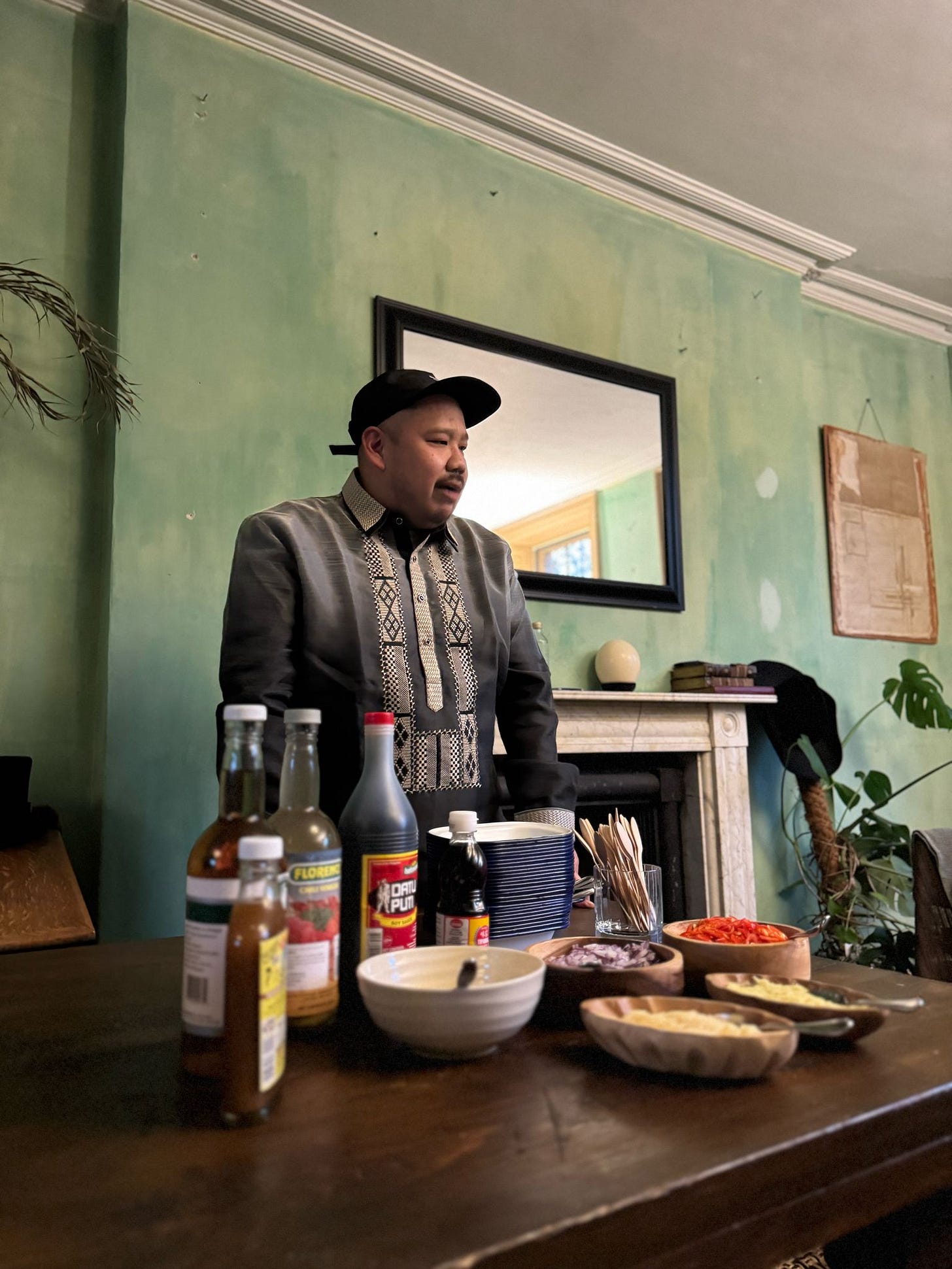
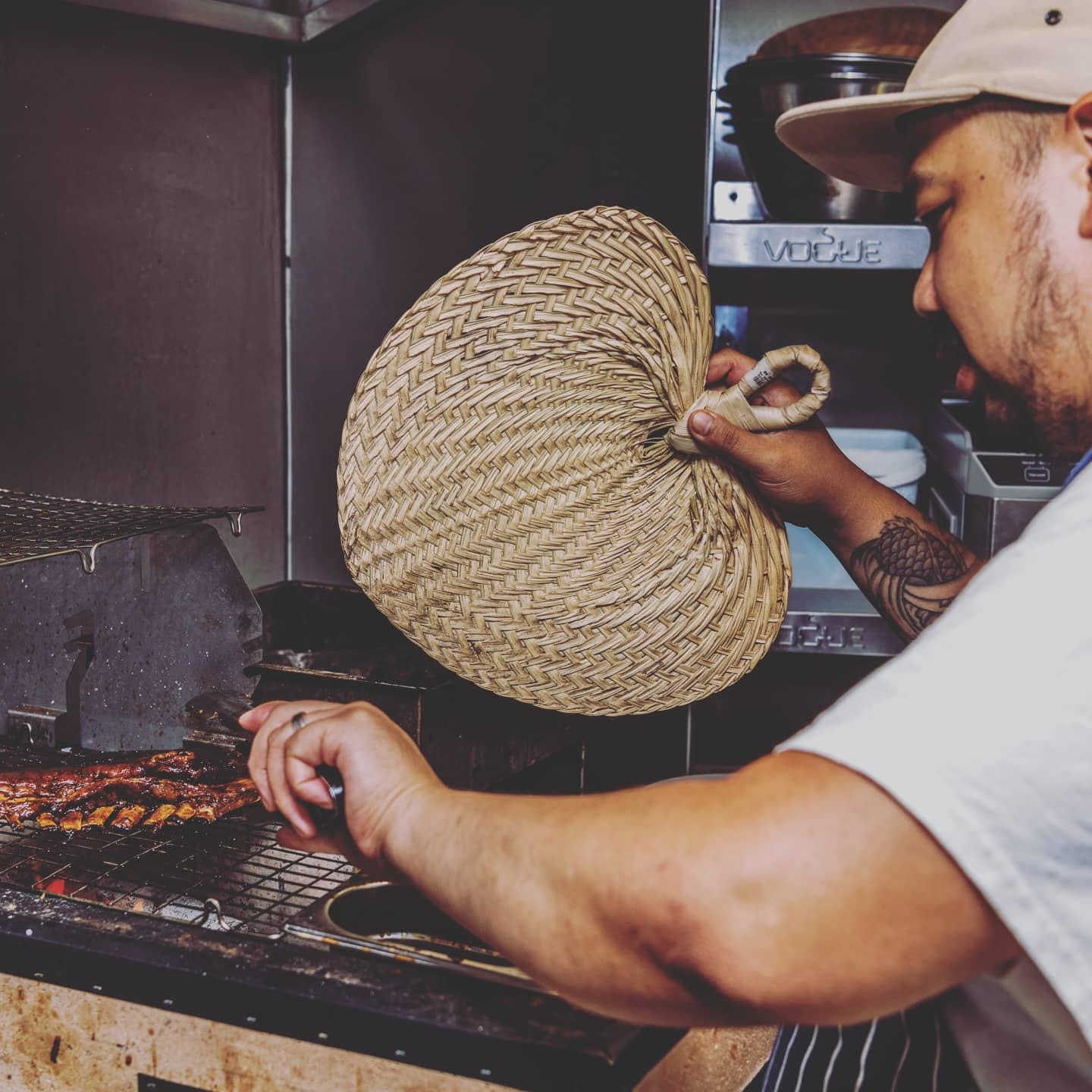
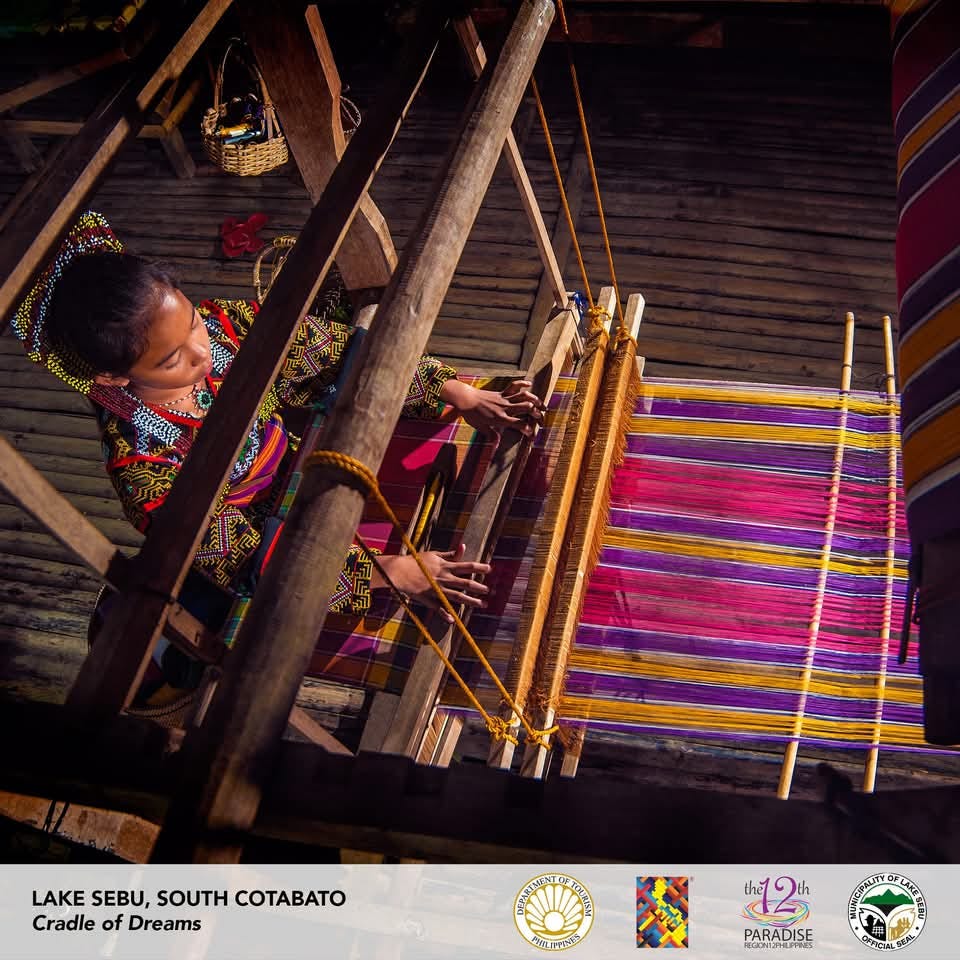
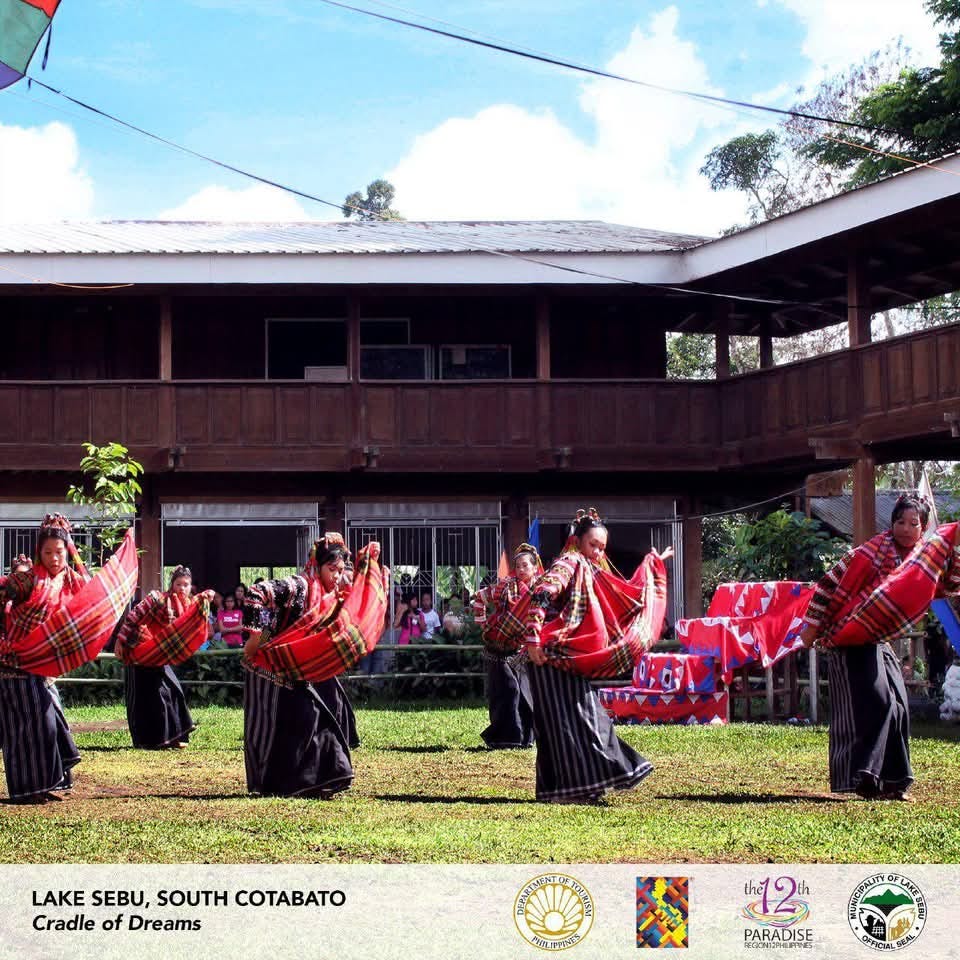

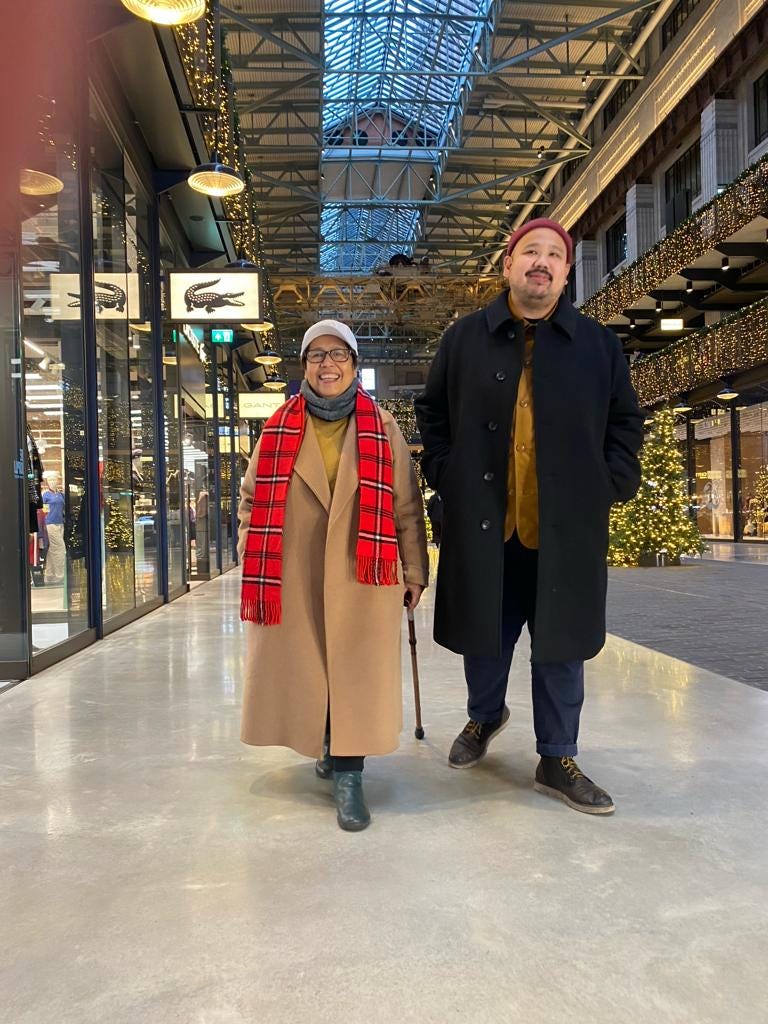
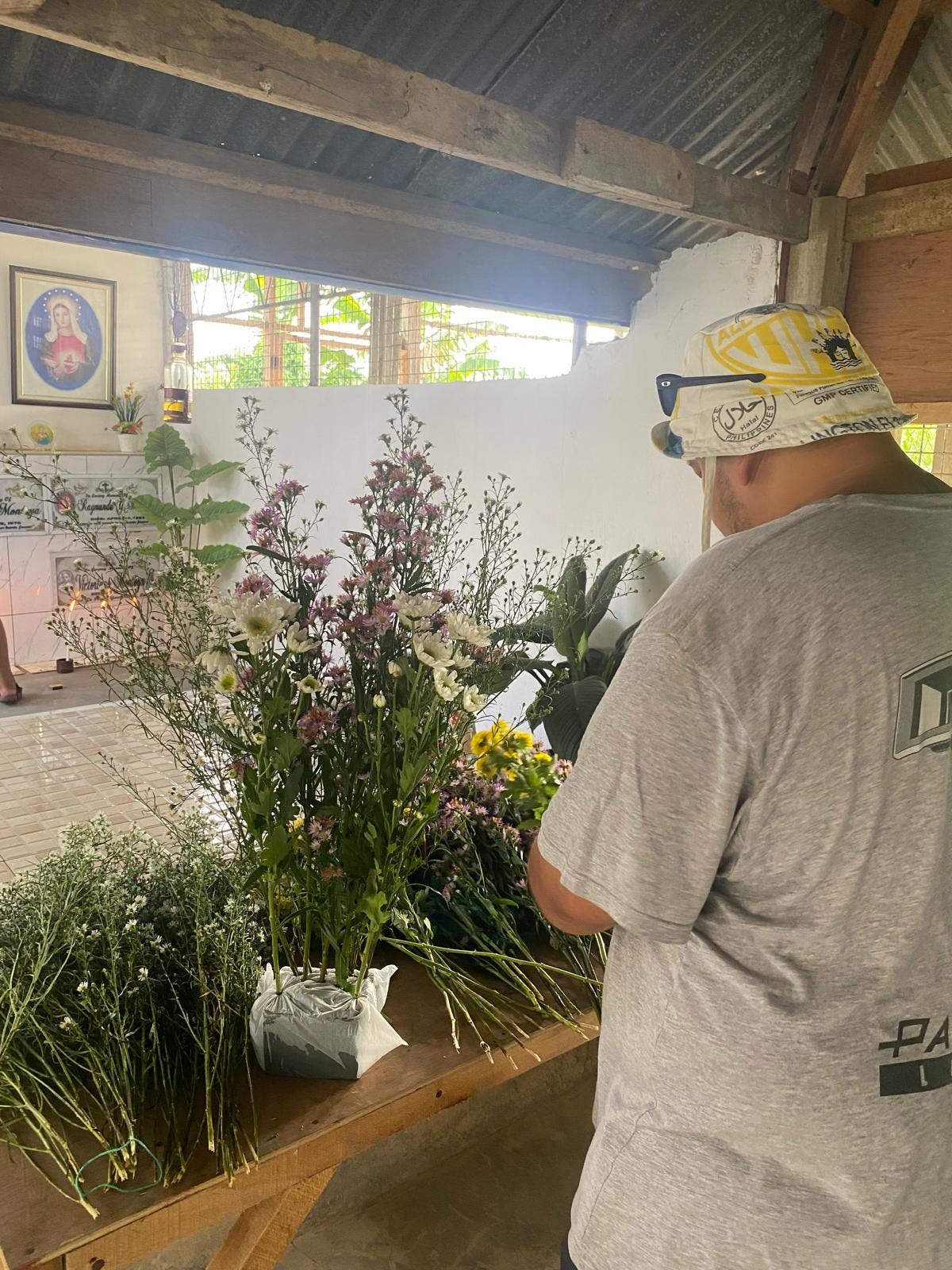
It feels as though with the right joined up thinking & strategy across the relevant agencies/departments in Manila - tourism, government, business development and culture (the Bangkok template - if you will) the Philippines could massively increase it's culinary appeal to overseas foodie vistors (Keith Floyd called them 'Gastronauts') and, for want of a better comparison, become Thailand 2.0 It is so important that all the objectives are aligned and I believe you could become a major player in kickstarting this campaign. More power to you Budgie, you are doing outstanding work in highlighting this opportunity. Bravo!
Thank you for writing this, Budgie. There's so much of this that rips at the heart.